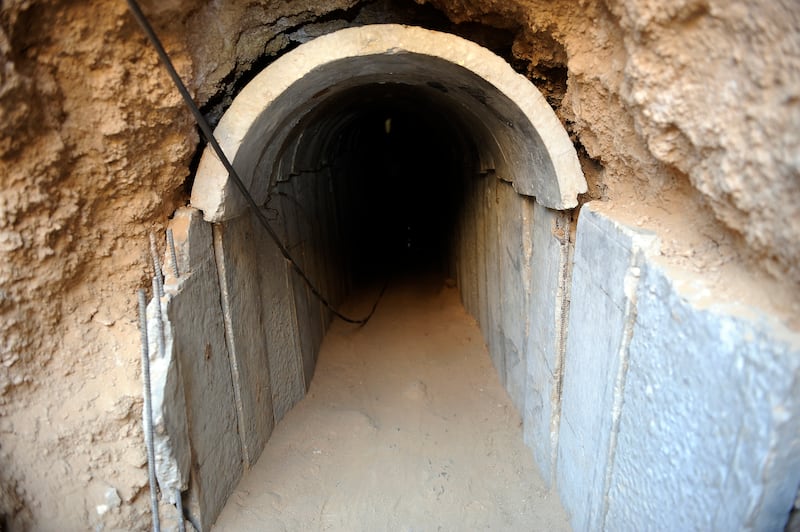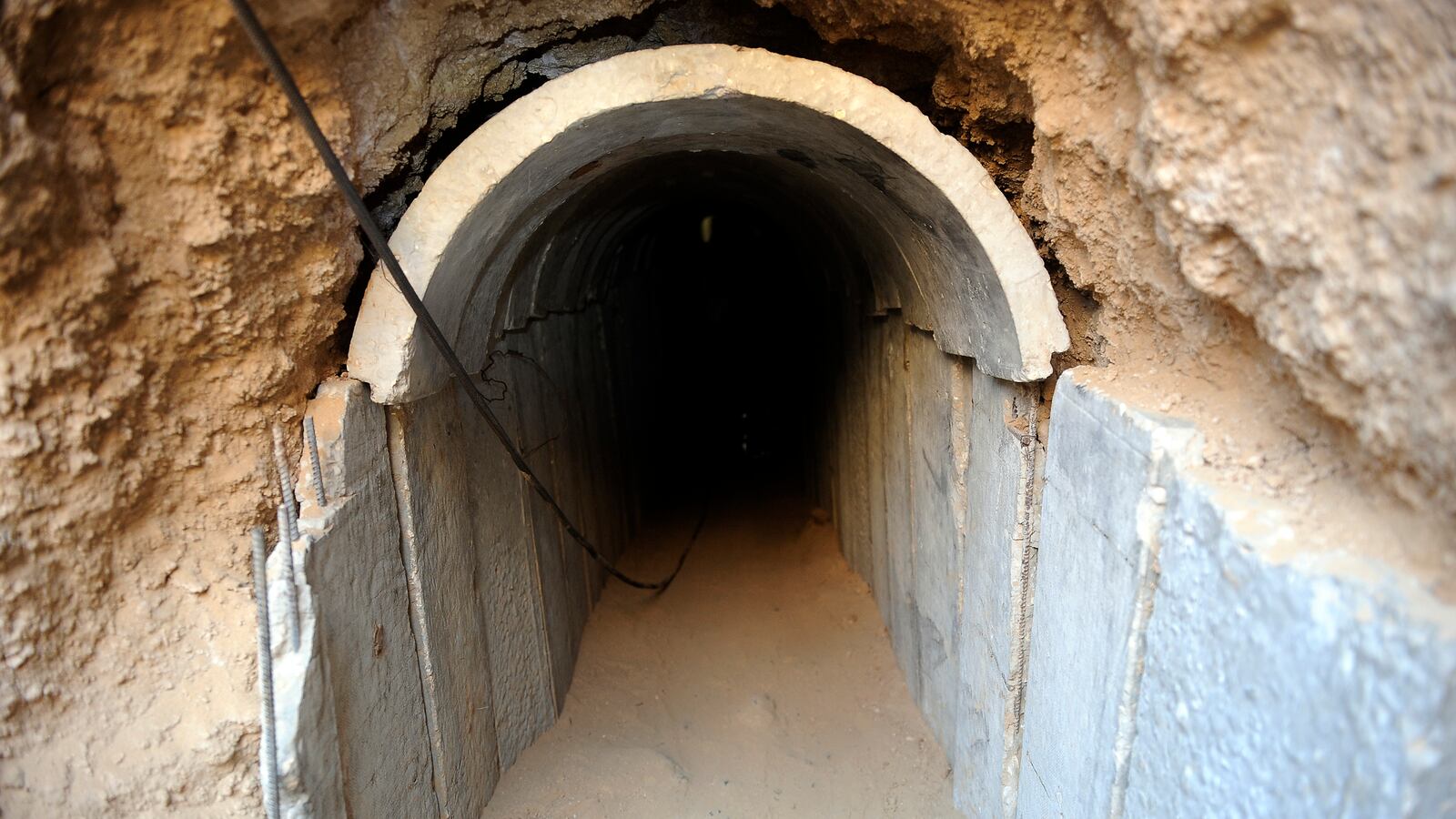When the Israel Defense Forces announced it discovered an underground tunnel running from Gaza into Israel last week, the IDF said Hamas built the tunnel and planned to use it to attack Israelis on their own soil. Hamas confirmed that to be the case for this tunnel, but there are many leading from Gaza, and Palestinians have more than one reason for building tunnels.
More than half of Gaza’s population is “food insecure,” meaning they lack “physical, social and economic access to sufficient, safe and nutritious food,” as defined by the U.N.’s Food and Agriculture Organization. Gazans’ motivation for building tunnels is more about smuggling consumer goods, construction materials, foodstuffs and other necessary supplies than weapons-making materials to hurt Israelis. In other words, the impetus is economic.

Of the 1.2 million refugees living in Gaza, those in need of food assistance has grown eightfold since the beginning of the Second Intifada in 2000, according to Margot Ellis, the U.N. Relief and Works Agency’s deputy commissioner.“And why? It's because of the blockade in Gaza. It's a man-made humanitarian catastrophe,” she said during a recent interview from Amman.
Just two weeks ago, Gazans protested against cutbacks to U.N. food assistance. Six months earlier, UNRWA suspended its food-assistance program for almost a week after violent protests broke out over a canceled cash-assistance program (UNRWA currently faces a $54 million projected budget deficit).
Beginning in 2007, Israel’s physical and economic blockade has wrought a level of hunger in Gaza comparable to that in the Central African Republic, Kenya and Liberia.
But a food shortage in Gaza is not the problem; poverty is.
Almost one third of the Gaza Strip’s population is unemployed, and the rate is even higher (39 percent) for 15 to 24-year-olds. Jobs are scarce, but the tunnels, both directly and indirectly, have provided income for many young Gazans. They work as smugglers and tunnel builders, or benefit from the economic opportunities provided by the import of scarce goods.
Since the July coup, the Egyptian military has cracked down on tunnels under the Gaza-Egypt border. Egypt wants to prevent an escalation between Hamas and Israel in order to maintain stable Egyptian-Israeli relations.
After the mile-long tunnel was discovered, Israel halted the import of building materials for Gaza’s private sector. This will undoubtedly hurt the already fragile economy there and further limit economic growth and development. Due to restrictions on construction materials, Gaza already has 250 fewer schools than it needs to accommodate students, with classes taught in two and three shifts, according to Israeli NGO Gisha—Legal Center for Freedom of Movement.
This summer, Gisha's director Sari Bashi told me how court petitions requiring the Israeli military to be more transparent about its blockade policy have revealed a level of absurdity in what is and isn’t allowed into Gaza.
“When you have a policy that says that cinnamon can be transferred into Gaza but coriander [or cilantro] is banned, the public becomes suspicious of the merits of that policy,” she said.
While most food items have been permitted since 2007, chocolate, seeds, nuts and dried fruit were not allowed until 2010. At one point, Israel was not allowing in a number of spices, like sage, coriander and nutmeg, in addition to construction materials, including cement, plaster and tar, so-called “dual-use” items, which could have both civilian and military purposes. Building materials continue to be barred.
Clearly, blocking certain goods from entering and leaving Gaza is less about Israel’s security and more about control. The blockade, meant as a form of economic sanctions to hurt the Hamas government, amounts to collective punishment of the civilian population.
While Palestinians killed 35 Israeli civilians in Israel from 2007 to 2012, according to B’Tselem, and some of those deaths resulted from rocket fire from Gaza, the 1.7 million people living there should not suffer manufactured poverty as penance for the actions of violent extremists.
Gaza’s inability to profit from exports has also devastated the economy and the people. Only one in 10 households in Gaza are food secure, according to a 2012 report by the U.N. and Palestinian Central Bureau of Statistics.
Since Israel prevents goods from entering Gaza by sea and air, and places heavy restrictions on imports and exports through overland border crossings, underground tunnels seem to be the only option. Given the circumstances and the blockade, building and using tunnels is the choice many in Gaza make.
The people may someday decide Hamas is failing to feed them (and failing in many other ways), and that they should call for new leaders—perhaps something Israel hopes for. Still, a situation in which hundreds of thousands of people can’t afford food and could threaten stability in the Gaza Strip will surely not benefit Israeli security.
UPDATE: This article has been updated to clarify that Hamas said it built the recently discovered tunnel from Gaza into Israel with the goal of "kidnapping [Israeli] soldiers."






